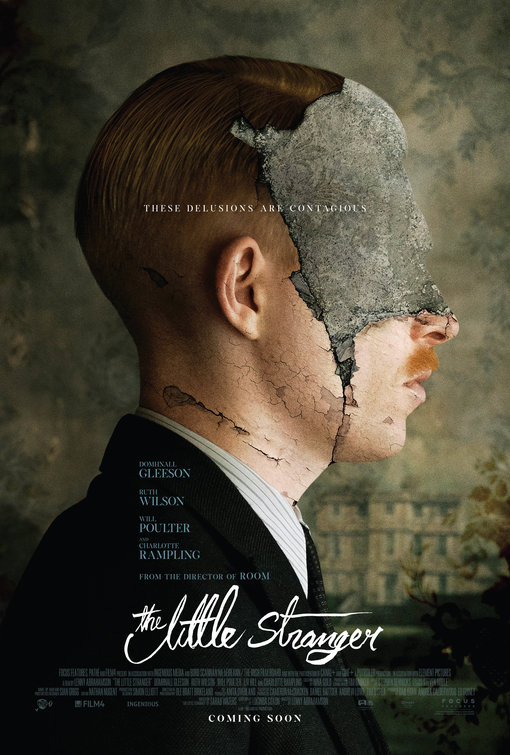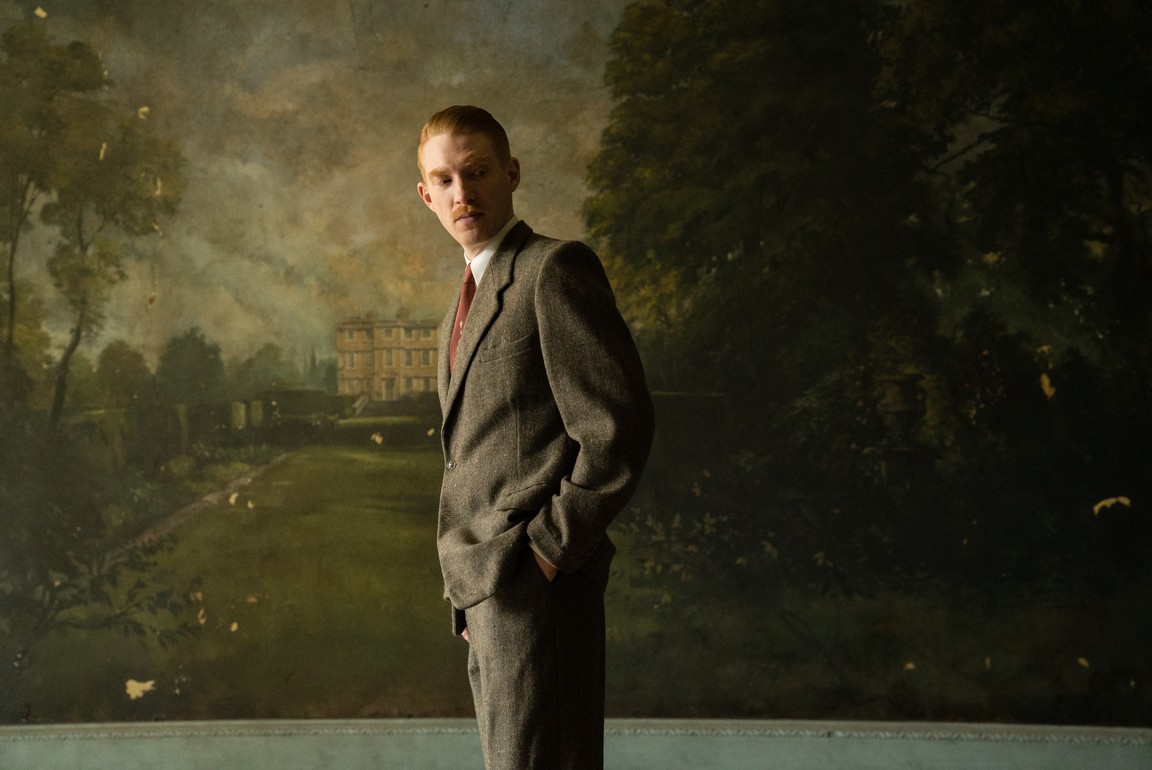by Chris Feil
 Adapted from the Sarah Waters novel, The Little Stranger is a ghost story in a lower register, more a delicate gothic character study than a stone cold chiller. Think of it like a Shirley Jackson tale turned inward, where the separation of class and circumstance draw the demons from within and without. It’s not a horror film to satisfy the jump hungry or the thrill seekers, but one that slowly grips you from behind and one you will unexpectedly recall vividly.
Adapted from the Sarah Waters novel, The Little Stranger is a ghost story in a lower register, more a delicate gothic character study than a stone cold chiller. Think of it like a Shirley Jackson tale turned inward, where the separation of class and circumstance draw the demons from within and without. It’s not a horror film to satisfy the jump hungry or the thrill seekers, but one that slowly grips you from behind and one you will unexpectedly recall vividly.
The staples of such subtle genre pieces are all present: a once lively mansion lost to decay, the somewhat reclusive family that remains, the weight of a dead child covering it all in a fine layer of dust. A local doctor Faraday pays a visit to Hundreds Hall to tend to the maid of the Ayres family. Though its residents have worn along with the estate, Faraday is still taken by the memory of when he had visited it as a boy, on the very day that the Ayres daughter Susan became deathly ill.
While the remaining Ayres children, Ruth Wilson’s sluggish Caroline and Will Poulter’s war scarred Roddy, reflect the home’s decline in physical ways, the matriarch embodies its spiritual one. Charlotte Rampling’s Mrs. Ayres remains a reminder of its former uppercrust stature in temperament, but Susan’s death has long made her emotionally desolate. Faraday is both outsider and invader, ingratiating himself kindly to the family before ultimately playing a demonstrative suitor to the indifferent Caroline.

In a 180 from their previous collaboration on the arch and underrated Frank, Room director Lenny Abrahamson reunites with Domhnall Gleeson as Faraday, delivering something built to keep the audience at an icy distance rather than that affectionate quasi-musical. The film plays cagey with the true nature of its spectre until its final moments, keeping its scares subdued save for a pseudo-set piece to initiate its third act. It keeps you on edge with its pristine sound design and soggy atmosphere waiting for something that may never come. When it does, it may not fully satisfy rampant horror hounds, but it lingers with something more surprising in how it haunts you. This is more a film where things aren't as simple as they appear, with Gleeson's performance and the slightly curdled melancholy of Lucinda Coxon's screenplay as its most compelling elements.
Gleeson is similarly pinched as Faraday, giving a subtle performance of snags and stiflings more impressive once the film reveals all of its intentions. His Faraday is chasing a life that he doesn’t know has grown a dry mold in its soul, with the sinister presence hovering over the Ayres’ barely registering as a pestilence. Stranger’s ghosts aren’t solely supernatural, with Gleeson making Faraday a vacant vessel for his hopes.
The film serves as an interesting antithesis to Abrahamson’s previous Oscar success Room and how the director captured space; where that film flourished by making its tiny confines feel vast, Stranger’s mansion is like a tiny rubik’s cube of wide-open claustrophobia. This is a nuanced bit of uncommonly tempered genre fare from the director, crafted for precision (and not just Gleeson’s mustache) if not to elevate our pulse rates (leave that to the aforementioned stache). For those of us drawn to its musty atmospherics led by its tip-of-the-iceberg character deceptions, The Little Stranger is kind of a rarity.
Grade: B